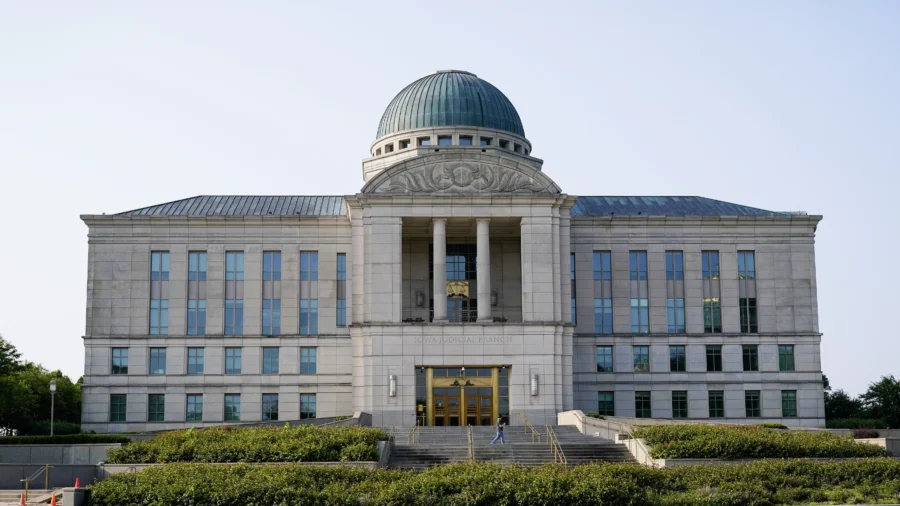The Iowa Supreme Court on June 28 ruled in favor of state officials who asked justices to lift an injunction against the state’s 6-week abortion ban.
The majority said that abortion is not a fundamental right under the Iowa Constitution and thus state officials only have to show a rational basis for the statute.
“We conclude that the fetal heartbeat statute is rationally related to the state’s legitimate interest in protecting unborn life,” Justice Matthew McDermott wrote for the majority.
The law bans most abortions after a fetal heartbeat is detected, with exceptions for rape, incest, and danger to the life of the mother.
The Iowa Legislature passed the law during a 2023 special session called by Iowa Gov. Kim Reynolds to enact legislation on abortion and unborn children.
Planned Parenthood and other groups filed for an emergency injunction, arguing the law violated women’s constitutional rights.
Polk County District Court Judge Joseph Seidlin, who was assigned the case, ruled that abortion is a fundamental right in Iowa and applied what’s known as the “undue burden” test. He determined that the law would deter many women from obtaining abortions, said groups challenging the law were likely to succeed in proving it is unconstitutional, and issued a temporary injunction.
State officials appealed, pointing to a 2022 ruling from the Iowa Supreme Court that said abortion is not a fundamental right under the Iowa Constitution.
“The state of Iowa has a vital interest in protecting unborn human life at all stages of development. The injunction precluding enforcement of Iowa’s Fetal Heartbeat Statute undermines that interest, ignores recent developments in state and federal law, and misapplies this court’s recent abortion precedents,” state lawyers told the Iowa Supreme Court.
The majority agreed, finding that Judge Seidlin wrongly applied the undue burden test and should have looked at whether the law is rationally related to a government interest. Justice McDermott noted that the state has said the law was aimed at respecting and preserving prenatal life, maternal health and safety, and eliminating “particularly gruesome or barbaric medical procedures.”
He wrote: “Every ground the state identifies is a legitimate interest for the legislature to pursue, and the restrictions on abortion in the fetal heartbeat statute are rationally related to advancing them. As a result, Planned Parenthood’s substantive due process challenge fails. The district court thus erred in granting the temporary injunction.”
The majority reversed the order granting the temporary injunction and remanded the case back to Judge Seidlin with orders to dissolve the injunction.
The case is not over, but will advance without the injunction in place.
“There is no right more sacred than life, and nothing more worthy of our strongest defense than the innocent unborn,” Ms. Reynolds said in a statement after the ruling was handed down. “As the heartbeat bill finally becomes law, we are deeply committed to supporting women in planning for motherhood, and promoting fatherhood and its importance in parenting.”
Alexis McGill Johnson, president and CEO of Planned Parenthood Federation of America, said in a statement the group is “devastated” by the ruling, “and the harmful consequences it will have on essential health care in Iowa. This ban will push abortion care out of reach for thousands of Iowans,”
Iowa Supreme Court Chief Justice Susan Christensen said in a dissent that the majority ruling ignored advancements in women’s rights and failed to interpret the state Constitution “through a modern lens.”
“It is painfully apparent to me that the majority misapprehends the nature of the liberty at issue here,” she stated. “It is not whether abortion, with the polarizing reactions it evokes, is a fundamental right but rather whether individuals have the fundamental right to make medical decisions affecting their health and bodily integrity in partnership with their healthcare provider free from government interference.”
From The Epoch Times


